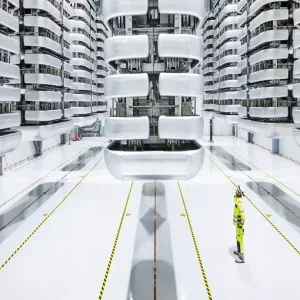The company said that the new base in Copenhagen has been established to capitalise on growing international interest in its wind desalination systems, which turn seawater and brackish groundwater into potable drinking water using renewable energy.
Windesal’s plants are designed as ‘modules’, which are each capable of producing between 3-5 gigalitres of fresh water a year through power generated by wind turbines.
During periods when wind is insufficient to drive the turbines, they are run by a modified generator powered by bio-fuels. Depending on power and water requirements, additional turbines or desalination modules are subsequently added to each plant as necessary to enable power to be fed into the electricity grid and/or greater water production, the company said.
Jonathan Whalley, CEO of Windesal, said that the company and its Danish supplier have a similar operational plant providing power to an island community in Northern Europe.
In Australia, Windesal is currently performing feasibility studies to install plants along the coast of South Australia to provide additional supplies of potable water and power close to where they are consumed.
Windesal has also appointed local businessman Thomas Vestesen as the new European director to manage the office.
Mr Whalley, said: “There has been growing interest from overseas in our wind desalination systems and now we’re in a much better position to pursue these global opportunities. The Copenhagen office will concentrate on pursuing new business prospects in Europe, Africa, the US and the Middle East.”






